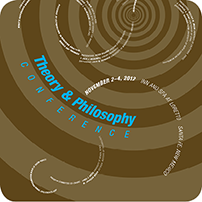A Functional Analysis of Psychological Terms Redux

Henry D. "Hank" Schlinger Jr. (California State University, Los Angeles)

Henry D. "Hank" Schlinger Jr. received his Ph.D. in psychology (applied behavior analysis) from Western Michigan University with Jack Michael. He then completed a 2-year National Institutes of Health-funded postdoctoral fellowship in behavioral pharmacology with Alan Poling. He was a full tenured professor of psychology at Western New England University in Springfield, MA, before moving to Los Angeles in 1998. He is now an associate professor of psychology and director of the MS program in applied behavior analysis in the Department of Psychology at California State University, Los Angeles. Dr. Schlinger has published 60 scientific articles and commentaries in more than 20 journals. He also has authored or co-authored three books, Psychology: A Behavioral Overview, A Behavior-Analytic View of Child Development (which was translated into Japanese), and Introduction to Scientific Psychology. He is a past editor of The Analysis of Verbal Behavior, current editor of The Behavior Analyst, and on the editorial boards of several other journals. He also serves on the Board of Trustees of the Cambridge Center for Behavioral Studies. He lives with his wife, a writer and editor, and their 2-year-old son in the quiet, serene hills of Burbank, CA, just a stone's throw from Disney Hall.
Abstract: In his seminal paper, "An Operational Analysis of Psychological Terms," B. F. Skinner (1945) offered the revolutionary suggestion that rather than endlessly debating the meanings of psychological terms, psychologists should analyze the variables controlling their occurrence. Skinner's suggestion reflected the essence of his 1957 book, Verbal Behavior, wherein he argued that the behaviors of which language is composed (i.e., speaking and listening) are caused by variables found in the social environment (which he called the verbal community), and that analyzing those variables would lead to understanding the behaviors. Although Skinner formally introduced his radical approach to language in 1945, it has yet to be fully realized. The result is that psychologists, including behavior analysts, still debate the definitions of terms. In the present paper, Dr. Schlinger will review Skinner's functional approach to language and describe ways in which behavior analysts have already applied it to such traditional psychological terms as memory, cognition, intelligence, perception, imagining, and consciousness. He will conclude by encouraging psychologists as well as behavior analysts to apply a functional analytic approach to their own verbal behavior.